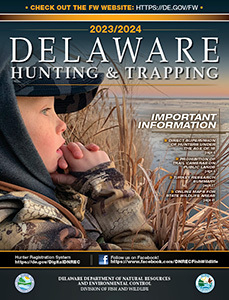Boating Safety
Boating Safety
Each year more hunters die from drowning and the effects of hypothermia than from gunshot wounds. Statistics show that the majority of capsizing and falls overboard occur with boats less than 20 feet in length. Some boat designs are not as stable as others. Hunters often use smaller, more easily transportable crafts like john boats, bass boats or canoes. These types of boats, because of their flat bottoms or narrow beams, are more prone to swamping or capsizing. Personal Flotation Devices (PFD’s) are essential and should be worn at all times. Special wearable flotation vests and coats for hunting are available and are comfortable and warm for the coldest duck and goose hunting days.
Engine/Propulsion Cut-Off Switches
In 2021, the US congress passed the “Engine cut off switch mandatory wear” law. It requires the operator to wear the ECOS (engine cut off switch) device on certain recreational vessels less than 26 in length with an engine capable of 115 lbs., which equates to about three horsepower or more. It also requires operators to use ECOS link while navigating on plane or above displacement speed. Using the ECOSL is not required when the main helm is installed within an enclosed cabin. For more information regarding this law please refer to the U.S. Coast Guard’s FAQs at https://uscgboating.org/recreational-boaters/engine-cut-off-switch-faq.php
Primary Causes of Hunting-related Water Deaths:
- Hypothermia – The rapid loss of body heat in cold water
- “Dry” Drowning – Constriction of the throat due to a sudden inrush of water, resulting in suffocation
- “Wet” Drowning – The displacement of air in the lungs with water
- Massive Heart Attacks in older, out-of-shape non-swimmers in cold water
- Being run over by own boat, especially when starting in gear and not wearing your engine cut-off switch
Most drownings could have been prevented. Drownings occur because the victim made the wrong decision; did not realize the dangers of boating in rough, cold water; was not properly prepared; had the wrong equipment; or failed to wear a PFD (life jacket).
Boating Safety Tips:
- Wear your PFD (life jacket)
- Never cross large bodies of water during rough weather in a boat that can’t take the conditions due to size and/or overloading.
- Stay with your boat if you capsize and can’t get to shore. Try to climb on it.
- Avoid standing up or moving around the boat.
- Never move about your boat with a loaded firearm.
- Read the capacity plate attached to the inside hull as a guide to keep from overloading your boat.
- Distribute your gear evenly.
- Don’t drink alcohol. Alcohol lowers your body’s core temperature and encourages individuals to take chances they wouldn’t normally take. Guns, alcohol and/or drugs don’t mix. It is illegal to be in possession of a firearm while under the influence of alcohol or drugs in a public place.
Did you know?
CPR can save your life! Cold water not only kills, but in some instances, it preserves. Warming drowning victims from the inside out by CPR or warm, moist inhalation may bring them back to life!
Delaware Small Boat Equipment Requirements |
||
Equipment |
Class A (less than 16 feet) |
Class 1 (16 feet to less than 26 feet) |
1. Annual registration fee |
$20.00 |
$40.00 |
2. Decals and boat number |
Display properly on bow |
Display properly on bow |
3. Personal flotation Device (PFD)*Must be serviceable (see below) |
One approved wearable PFD |
One approved wearable PFD for each person on board plus one throwable PFD. |
4. Whistle |
One hand, mouth or power |
One hand, mouth or power operated, and audible at least one half (1/2) mile |
5. Fire Extinguisher Portable |
One type B-1, if carrying passengers for hire, or if boat construction will permit entrapment of flammable vapors. |
One type B-1, if carrying passengers for hire, |
6. Lights |
||

|
||
7. Ventilation At least two ventilator ducts fitted with cowls or equivalent, |
||
8. Atlantic Ocean, Delaware Bay and Delaware River South of Artificial Island—U.S. Coast Guard regulations require all vessels to carry day and night distress signaling devices. |
||
Take a Boating Education Course
Those persons born on or after January 1, 1978 must take an approved boating education course before operating a boat. Contact the Office of Boating Safety and Education for more information on taking a classroom course: 302-739-9915. OR Take an online course at http://de.gov/boatsafety.

